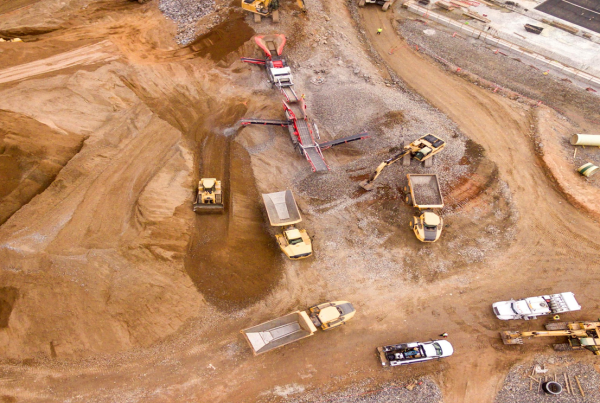And so it’s a wrap. The UN Climate Change Conference in Lima, Peru, dubbed as COP 20 (Conference of the Parties, the twentieth session so far) had finally ended last Sunday, spilling over for some 36 hours behind schedule.
The delay wasn’t because the 196 participating countries had so much to share and contribute. It was simply because they couldn’t agree to some of the clauses in the agreement. In other words, irreconcilable differences.

An exasperated man throws up his hands, while Chinese factories nonchalantly spew out toxic fumes in the sky. (Image from PressTV.ir)
From the beginning the Climate Change talks had been criticized for its many ironic aspects. Mainly, it was the huge carbon footprint dedicated to creating the conference venue from scratch. The United Nations itself assessed that the Lima conference has more than eight times as much carbon as the 2009 Copenhagen talks and twice that of the Cancun, Mexico conference in 2010.
Other critics point out that these climate change talks have always been eternally a stepping stone, in preparation for a future round of talks. But this is already the 20th year. Are they still gearing each other up for the necessary sacrifices their respective countries have to make?
If, as the scientists warn, the world is in dire need of a solution, where is the urgency from these delegates?
Achievements So Far
Carbon footprint and procrastination aside, COP 20 is meant to provide the framework for the 2015 UN Climate Change Conference to be held in Paris. As environment Peruvian Manuel Pulgar-Vidal says, “there will be no Paris if there is no [result in] Lima”. Which is what some environmentalists are complaining about. They say that in a last ditch attempt to have the talks finally over and done with, what the COP 20 came up with is a half-heartedly signed 37-page document that compromises on a lot of things.
Aside from the creation of that document that would pave the way to Paris, the delegates also were asked to submit their respective Intended Nationally Determined Contributions (or INDCs), just like in previous years.

Burdened with responsibility: Delegates at the UN Climate Change Conference in Lima (Image from NYTimes)
INDCs still remain somewhat of a potluck concept, with each country stating what they can and how much effort, money, support, etc. they are willing contribute to the reduction of global emissions worldwide. As expected, all the participating countries agreed to reduce emissions, but just how much reduction was required from them was unknown.
No More Categories
Michael Jacobs, writing for The Guardian, says, “The key elements [of the conference] were agreed on, but only in the form of guidance, not as requirements.” Even the financial aid to poor countries have not been concretized.
Still, despite all that’s lacking, he says the conference represented a fundamental breakthrough: the erasure of categories of countries in the UN talks.
For the longest time, countries in the UN climate change talks have been categorized into two: the developed nations and the developing countries. The former, being industrialized and hence overtly responsible for majority of global emissions, naturally had compulsory obligations, while the latter, being poorer, only were free to volunteer their efforts. After all, it is those vulnerable low- and middle-income countries, the ones least responsible for spewing tons of carbon dioxide in the atmosphere such as India, Zimbabwe, the Philippines, Sudan, Malawi, Ethiopia, Honduras, Bangladesh, and many others that suffer the brunt of climate change’s disastrous effects.
But this time around, the implicit agreement is that each country, big or small, developed or still developing, has a significant hand in climate change. It is everyone’s fight. Which is one of the reasons the Philippines left its former group, the Like-Minded Group of Developing Countries (LMDC), in an effort to own up to its involvement in climate change and willingly reduce its emissions. Other member countries, such as China and Brazil, are opposed to dissolving the two categories. Ironically, China itself is part of LMDC, despite it being fully developed, as well as being one of the premier polluters of the world’s atmosphere.
Future Climate Talks
So what happens now after the talks? More talks and negotiations maybe. At this rate, we might never probably win the war on climate change, as Dr. Palanisamy Nagarajan opines in The Guardian. In his Letter to the Editor, Nagarajan quotes astrobiologist David Grinspoon:
“Scientists claim that humanity has entered a new geological era — the Anthropocene. “We’ve reached the stage in Earth’s evolution where humans are now a major agent of planetary change . . . our presence is a significant perturbation, a fundamental change in the way the planet is operating. We are managing this planet. But we don’t really know how to manage a planet.”
Every day, we hear of some new technological breakthrough that’s supposed to be eco-friendly and that might even change the world. Smart solar cells, smart LED light, smart sustainable cement, smart etcetera. We’ve geo-mapped and plotted out the future projections of climate change effects on the oceans, the air, the land, the biodiversity. It is a sad picture. And it’s being felt now, as we speak. But even if the trailblazing technology is already there, if political will is lacking, there can’t be any real change.
We want to see real talk in these climate change conferences. No bull. No cutting corners just because some clause doesn’t sit well with a country’s economic agenda. As for the average person reading this, climate change is as much your concern and responsibility as everyone else.










